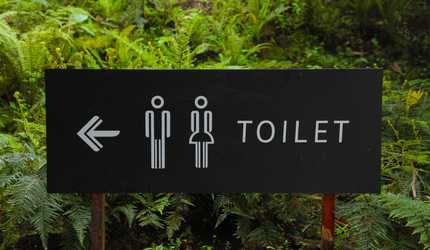How to Pick a Charity to Run For

Contents
Charities and running go hand in hand. As of 2023 there are over 400,000 registered charities in the UK. These range from large nationwide initiatives to DIY community projects.
The reason running works so well with charities is the amount of money it helps fundraise for good causes. And there are so many personal benefits of running for a charity. The most famous example is the TCS London Marathon, officially the single largest annual fundraising event on earth. Since it started in 1981, runners have raised over 1-billion pounds for charitable causes.
This article is going to cover five of the most important factors to consider when contemplating how to run a marathon for a charity.
Run from the heart
Starting at the centre and working from the heart is at the core of how to pick a marathon charity to run for.
Let’s say you went with your head and picked a charity because it was convenient. You might start to run and train more for the sake of running and training; instead of running and training towards a goal built around your personal values. If it starts with convenience then you’re more likely to keep those feet warm and dry on wet rainy evenings after work.
Picking the charity that matches your values – essentially what’s important in life! – will enable you to support it as second nature. Many people run from the heart by supporting causes that have personal or family connections attached to it. In these instances those people and causes are one and the other.
Get to know the charity
Each charity has a story about why it came into existence. The common thread with all charities is the social cause. Charities exist to lessen the impact of social issues that affect people and the planet. Therefore an important place to start when picking a charity is to find out what the social cause is.
Aligning your social cause with a charity will be at the heart of picking the right charity for you.
As social causes align, so do your motivations to understand more about the charity and the way it works at alleviating its chosen social issue.
This can be done at a distance or in person depending on which charity you choose. In turn this will fire you up when talking to friends and family about why you are running for the charity.
What will the charity expect from me?
Alongside the alignment of your social cause, it is important to establish and agree what the charity expects from you. Getting to know the charity you’re fundraising for isn’t just a one way process.
The reason you’ve picked the charity is to do good by giving. Most commonly this is a financial donation. Be ready to have a charity ask how you intend to achieve this expectation.
At this point, considering how to raise money for a marathon is important.
Set a realistic funding target
Discussing the expectations of both sides is the right conversation to begin to tease out what a realistic fundraising target looks like. While this shouldn’t solely shape who you decide to run for, it might guide which event (and charity) you end up choosing. As events go, the bigger and more prestigious ones equate to higher entry costs but greater potential to fundraise money.
How much money to raise for a charity needs to consider the number of potential donors you can pool together. Start by highlighting family members before moving onto friends and work colleagues.
Each social group will have different reasons to sponsor you. The way you shape your story and progress towards the goal – keeping the social cause as central – is how you can begin to bring these potential donors on side.
With a fundraising target set. The next thing to do is to break down the total target into smaller bite size fundraising chunks. Over weeks and months this can make monitoring your progress both smart and realistic. Another motivation to keep going when it gets tough!
Run together
Now you’ve signed up to your charity and you’ve got an entry place to your chosen event.
Consider – why run a marathon for charity, rather than solo? Like many things in life: experiencing something together can be way more powerful than experiencing something alone. When picking a charity and cause to fundraise for, a no brainer is to sign up with somebody else, making the challenge a social endeavour.
Consistently training requires persistence and endurance. At the toughest times, maybe when you’re feeling tired, or the weather is horrendous; a running buddy with the same goal is your catalyst to get out and do some more. A running partner is the one that can hold you accountable. More broadly a running group can provide a super social and supportive environment. Adding in all these supportive elements will help you achieve your charitable goals.
Look at impact
Showcasing the impact a charity has on its social cause has grown in importance in recent decades. With more charities (over 400,000) vying for donations and support, there is greater need to justify why you should donate your time, money or resources. This is no different when picking a charity to fundraise for.
Start by looking into the transparency of the charity around how they operate and spend their funding. Many charities are required to submit their accounts and a report on their activities – if available, you can search the government’s charity commission for these details.
The size and location of a charity are strong determinants on the potential impact your fundraising efforts could have on the social cause. For example, donating to a local charity is great, because you’ll see first hand the effects of your fundraising efforts. A local project is also a site that you can easily return to continue to see how the work progresses.
Don’t forget: raising money for charity helps real people and can change lives!


